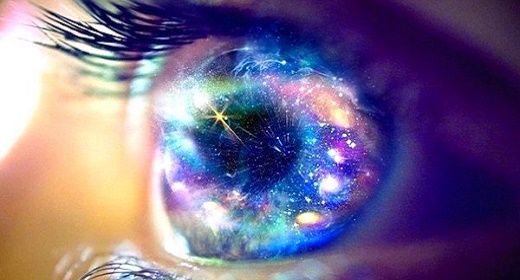by Kendra Cherry: A small pilot study shows for the first time that changes in diet, exercise, stress management and social support may result in longer telomeres, the parts of chromosomes that affect aging.
It is the first controlled trial to show that any intervention might lengthen telomeres over time.
Psychologist Abraham Maslow developed a hierarchy of needs, representing all the various needs that motivate human behavior. The hierarchy is often displayed as a pyramid, with the lowest levels representing basic needs and more complex needs located at the top of the pyramid.
At the peak of this hierarchy is self-actualization. The hierarchy suggested that when the other needs at the pyramid’s base have been met, you can focus on this pinnacle need to achieve your full potential.
It is important to note that self-actualization isn’t about being perfect or achieving all your life goals. Instead, it is a state of mind that allows people to approach problems, relationships, and needs with acceptance and understanding.
Characteristics of Self-Actualized People
Self-actualized people tend to have a number of characteristics that allow them to achieve their fullest state of being. In addition to those that were originally proposed by Maslow, modern researchers have expanded on these traits and suggested other personality traits that are also connected to self-actualization.1
Some of the key characteristics that may help a person become self-actualized include:
Self-Actualized People Have Peak Experiences
One characterization of self-actualization is having frequent peak experiences. According to Maslow,2 a peak experience involves feelings of intense ecstasy, joy, and wonder. During such experiences, people often lose track of time and acutely feel that what they are experiencing is important, valuable, unique, and special.
These experiences can also be transformative. People may walk away feeling as if they have been fundamentally changed or gained insight into the world and themselves.
In other words, peak experiences are moments of transcendence in which a person emerges feeling changed and transformed.
They Have a Continuous Sense of Appreciation
Self-actualization is also marked by the ability to maintain a fresh outlook on life.1 Instead of seeing everyday experiences as mundane or stale, self-actualized people continue to feel a sense of awe, wonder, and joy. They maintain a sense of gratitude for the good things in life, no matter how often they experience those things.
Self-Actualization Involves Acceptance
Another key characteristic of self-actualization is the ability to accept themselves and others as they are. They tend to lack inhibition and can enjoy themselves and their lives free of guilt.3
Not only do self-actualized people fully accept themselves, they also embrace others for who they are. Other individuals are treated equally regardless of background, current status, or other socio-economic and cultural factors.
Self-Actualized People Are Realistic
Another major characteristic of self-actualized people is a sense of realism.4 Rather than being fearful of things that are different or unknown, the self-actualized individual can view life as it unfolds logically and rationally.
They Are Problem-Centered
Self-actualized individuals are often motivated by a strong sense of personal ethics and responsibility.5 They enjoy applying their problem-solving skills to real-world situations, and they like helping other people improve their own lives.
They are Independent
Self-actualized people also tend to be very independent.5 They don’t conform to other people’s ideas of happiness or contentment. This original perspective allows the individual to live in the moment and appreciate the beauty of each experience.
Self-Actualized People Value Privacy
Self-actualized individuals value their privacy and enjoy solitude. While they also love the company of others, taking time to themselves is essential for their personal discovery and cultivating their potential.6
They Have a Philosophical Sense of Humor
Self-actualized individuals generally have a thoughtful sense of humor. They’re able to enjoy the humor in situations and laugh at themselves, but they don’t ridicule or joke at the expense of another person’s feelings.
Spontaneity Is a Sign of Self-Actualization
Another characteristic of self-actualized people is a tendency to be open, unconventional, and spontaneous.7 While these people are able to follow generally accepted social expectations, they don’t feel confined by these norms in their thoughts or behaviors.
They Sense of Purpose
Self-actualization is also marked by a sense of purpose. Researchers have found that self-actualized people often feel that they have a specific mission, duty, or responsibility in life.
This purpose is often humanitarian in nature. They feel deeply connected to other people and experience tremendous empathy for the plight of others. This sense of empathy and purpose often drives them to work toward making the world better.
Self-Actualized People Focus on the Journey
While self-actualized people have concrete goals, they don’t see things as simply a means to an end. The journey toward achieving a goal is just as important and enjoyable as actually accomplishing the goal.
Beyond Self-Actualization
According to a 2018 study looking at the personality characteristics most associated with self-actualization, many self-actualized people are also on the path toward a Maslow dubbed self-transcendence.1 While not part of the original hierarchy, Maslow described self-transcendence as a higher state in which people see beyond their own concerns and perspectives, achieving a state of feeling at one with the world and those in it.
Press Play for Advice On Reaching Your Dreams
Hosted by Editor-in-Chief and therapist Amy Morin, LCSW, this episode of The Verywell Mind Podcast, featuring best-selling author Dave Hollis, shares how to create your best life. Click below to listen now.
How to Achieve Self-Actualization
Fortunately, there are things that you can do to become more actualized, live more authentically, and bring a sense of purpose and meaning into your life.
- Be accepting: Working on becoming more accepting of yourself and the people around you. While getting annoyed with things you’d change or do differently is easy, try to look at each person and situation with kindness.
- Practice mindfulness: Mindfulness is a practice that involves learning to focus on the present moment with acceptance. Mindfulness can help you become more aware of yourself and the world around you.
- Work on being empathetic: Showing others empathy and compassion is important to self-actualization. People who reach the peak of Maslow’s hierarchy care about others. You can work on building your empathy by imagining yourself in other people’s situations, volunteering for causes that help improve the world, and looking for ways to make your local community a better place to live.
- Practice openness: Self-actualized people can look at the world with fresh ideas, contemplate other perspectives, and approach the world with an open mind. Learning how to cultivate a sense of openness can help you learn things about the world and yourself that you might miss.
- Consider therapy: Psychotherapy can help you achieve a deeper understanding of yourself and a greater sense of fulfillment. Humanistic therapy, client-centered therapy, Gestalt therapy, and existential therapy are a few approaches to treatment that grew out of the humanistic perspective in psychology that may help build your self-actualization skills.
A Word From Verywell
Self-actualization can improve your well-being, but it is important to recognize that it may look different for each person. Achieving your full potential takes time; it is more about the journey toward becoming your fullest self than reaching a specific destination. By recognizing the characteristics of self-actualized people, you can practice some of these strategies in your own life.









































